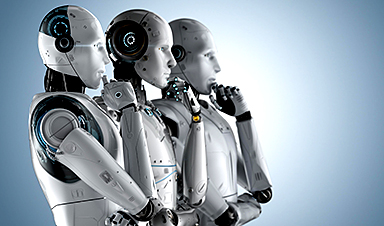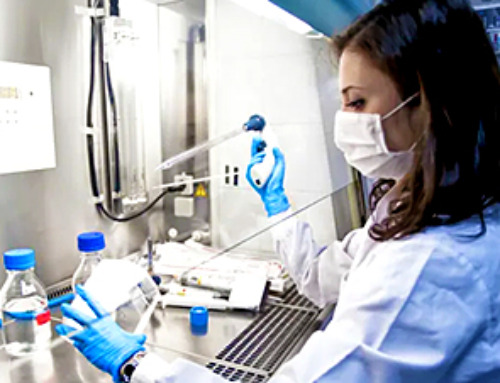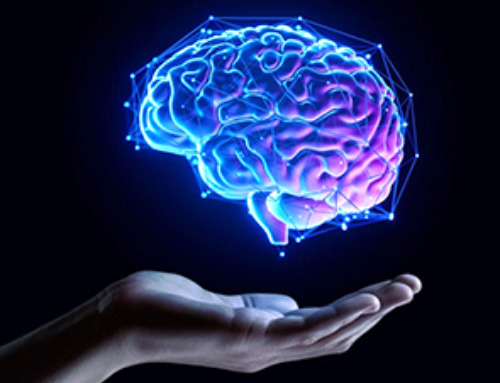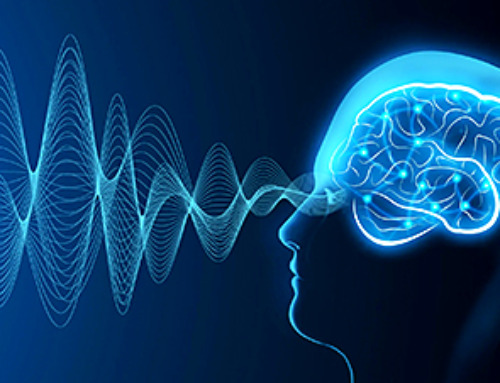Using machine learning to improve living.
A groundbreaking machine-learning study has revealed the optimal drug combinations to prevent the recurrence of COVID-19 after initial infection. Interestingly, the ideal combination differs among patients.
Using real-world data from a hospital in China, the UC Riverside-led study discovered that factors such as age, weight, and other health conditions dictate which drug combinations most effectively reduce recurrence rates. This finding has been published in the journal Frontiers in Artificial Intelligence.
That the data came from China is significant for two reasons. First, when patients are treated for COVID-19 in the U.S., it is normally with one or two drugs. Early in the pandemic, doctors in China could prescribe as many as eight different drugs, enabling analysis of more drug combinations. Second, COVID-19 patients in China must quarantine in a government-run hotel after being discharged from the hospital, which allows researchers to learn about reinfection rates in a more systematic way.
The study project began in April 2020, about a month into the pandemic. At the time, most studies were focused on death rates. However, doctors in Shenzhen, near Hong Kong, were more concerned about recurrence rates because fewer people there were dying.
"Surprisingly, nearly 30% of patients became positive again within 28 days of being released from the hospital," said Jiayu Liao, associate professor of bioengineering and study co-author.
Data for more than 400 COVID patients was included in the study. Their average age was 45, most were infected with moderate cases of the virus, and the group was evenly divided by gender. Most were treated with one of various combinations of an antiviral, an anti-inflammatory, and an immune-modulating drug, such as interferon or hydroxychloroquine.
That various demographic groups had better success with different combinations can be traced to the way the virus operates.
"COVID-19 suppresses interferon, a protein cells make to inhibit invading viruses. With defenses lowered, COVID can replicate until the immune system explodes in the body, and destroys tissues," explained Liao.
People who had weaker immune systems prior to COVID infection required an immune-boosting drug to fight the infection effectively. Younger peoples' immune systems become overactive with infection, which can lead to excessive tissue inflammation and even death. To prevent this, younger people require an immune suppressant as part of their treatment.
"When we get treatment for diseases, many doctors tend to offer one solution for people 18 and up. We should now reconsider age differences, as well as other disease conditions, such as diabetes and obesity," Liao said.
Most of the time, when conducting drug efficacy tests, scientists design a clinical trial in which people having the same disease and baseline characteristics are randomly assigned to either treatment or control groups. But that approach does not consider other medical conditions that may affect how the drug works — or doesn't work — for specific sub-groups.
Because this study utilized real-world data, the researchers had to adjust for factors that could affect the outcomes they observed. For example, if a certain drug combination was given mostly to older people and proved ineffective, it would not be clear whether the drug is to blame or the person's age.
"For this study, we pioneered a technique to attack the challenge of confounding factors by virtually matching people with similar characteristics who were undergoing different treatment combinations," Cui said. "In this way, we could generalize the efficacy of treatment combinations in different subgroups."
While COVID-19 is better understood today, and vaccines have greatly reduced death rates, there remains much to be learned about treatments and preventing reinfections. "Now that recurrence is more of a concern, I hope people can use these results," Cui said.
Machine learning has been used in many areas related to COVID, such as disease diagnosis, vaccine development, and drug design, in addition to this new analysis of multi-drug combinations. Liao believes that technology will have an even bigger role to play going forward.
"In medicine, machine learning and artificial intelligence have not yet had as much impact as I believe they will in the future," Liao said. "This project is a great example of how we can move toward truly personalized medicine."
Reference: "Learning from real world data about combinatorial treatment selection for COVID-19" by Song Zhai, Zhiwei Zhang, Jiayu Liao and Xinping Cui, 3 April 2023, Frontiers in Artificial Intelligence.
DOI: 10.3389/frai.2023.1123285
News
These two viruses may become the next public health threats, scientists say
Two emerging pathogens with animal origins—influenza D virus and canine coronavirus—have so far been quietly flying under the radar, but researchers warn conditions are ripe for the viruses to spread more widely among humans. [...]
COVID-19 viral fragments shown to target and kill specific immune cells
COVID-19 viral fragments shown to target and kill specific immune cells in UCLA-led study Clues about extreme cases and omicron’s effects come from a cross-disciplinary international research team New research shows that after the [...]
Smaller Than a Grain of Salt: Engineers Create the World’s Tiniest Wireless Brain Implant
A salt-grain-sized neural implant can record and transmit brain activity wirelessly for extended periods. Researchers at Cornell University, working with collaborators, have created an extremely small neural implant that can sit on a grain of [...]
Scientists Develop a New Way To See Inside the Human Body Using 3D Color Imaging
A newly developed imaging method blends ultrasound and photoacoustics to capture both tissue structure and blood-vessel function in 3D. By blending two powerful imaging methods, researchers from Caltech and USC have developed a new way to [...]
Brain waves could help paralyzed patients move again
People with spinal cord injuries often lose the ability to move their arms or legs. In many cases, the nerves in the limbs remain healthy, and the brain continues to function normally. The loss of [...]
Scientists Discover a New “Cleanup Hub” Inside the Human Brain
A newly identified lymphatic drainage pathway along the middle meningeal artery reveals how the human brain clears waste. How does the brain clear away waste? This task is handled by the brain’s lymphatic drainage [...]
New Drug Slashes Dangerous Blood Fats by Nearly 40% in First Human Trial
Scientists have found a way to fine-tune a central fat-control pathway in the liver, reducing harmful blood triglycerides while preserving beneficial cholesterol functions. When we eat, the body turns surplus calories into molecules called [...]
A Simple Brain Scan May Help Restore Movement After Paralysis
A brain cap and smart algorithms may one day help paralyzed patients turn thought into movement—no surgery required. People with spinal cord injuries often experience partial or complete loss of movement in their arms [...]
Plant Discovery Could Transform How Medicines Are Made
Scientists have uncovered an unexpected way plants make powerful chemicals, revealing hidden biological connections that could transform how medicines are discovered and produced. Plants produce protective chemicals called alkaloids as part of their natural [...]
Scientists Develop IV Therapy That Repairs the Brain After Stroke
New nanomaterial passes the blood-brain barrier to reduce damaging inflammation after the most common form of stroke. When someone experiences a stroke, doctors must quickly restore blood flow to the brain to prevent death. [...]
Analyzing Darwin’s specimens without opening 200-year-old jars
Scientists have successfully analyzed Charles Darwin's original specimens from his HMS Beagle voyage (1831 to 1836) to the Galapagos Islands. Remarkably, the specimens have been analyzed without opening their 200-year-old preservation jars. Examining 46 [...]
Scientists discover natural ‘brake’ that could stop harmful inflammation
Researchers at University College London (UCL) have uncovered a key mechanism that helps the body switch off inflammation—a breakthrough that could lead to new treatments for chronic diseases affecting millions worldwide. Inflammation is the [...]
A Forgotten Molecule Could Revive Failing Antifungal Drugs and Save Millions of Lives
Scientists have uncovered a way to make existing antifungal drugs work again against deadly, drug-resistant fungi. Fungal infections claim millions of lives worldwide each year, and current medical treatments are failing to keep pace. [...]
Scientists Trap Thyme’s Healing Power in Tiny Capsules
A new micro-encapsulation breakthrough could turn thyme’s powerful health benefits into safer, smarter nanodoses. Thyme extract is often praised for its wide range of health benefits, giving it a reputation as a natural medicinal [...]
Scientists Develop Spray-On Powder That Instantly Seals Life-Threatening Wounds
KAIST scientists have created a fast-acting, stable powder hemostat that stops bleeding in one second and could significantly improve survival in combat and emergency medicine. Severe blood loss remains the primary cause of death from [...]
Oceans Are Struggling To Absorb Carbon As Microplastics Flood Their Waters
New research points to an unexpected way plastic pollution may be influencing Earth’s climate system. A recent study suggests that microscopic plastic pollution is reducing the ocean’s capacity to take in carbon dioxide, a [...]





















